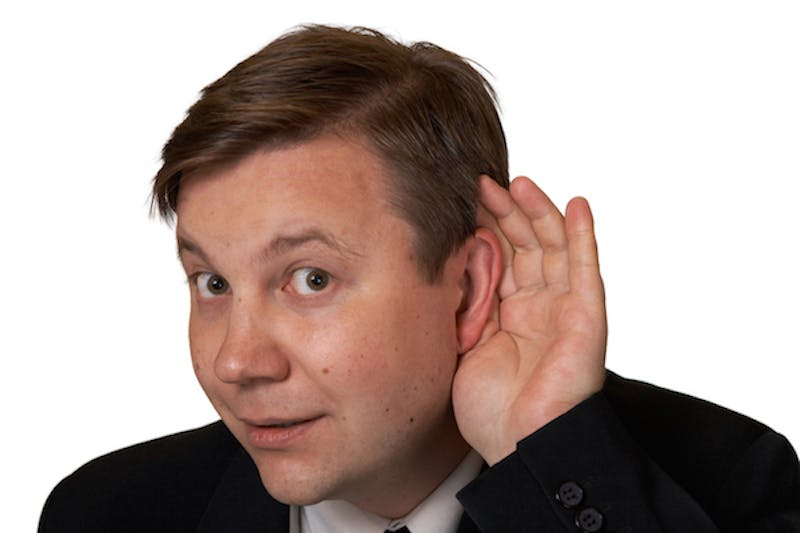
Our hearing staff at Orlando Hearing Services will be discussing the different types of hearing loss in our blog article today. Hearing loss interferes with the ability to perceive sound. The sense of sound is normally created through vibrations from an organ in the inner ear unless we are suffering from a hearing impairment. Hearing loss could be full or partial impairment depending upon different criteria.
The loss can be from just a simple ear wax buildup, from fluid in the ear or the eardrum could be punctured. It is important to check with our hearing professionals anytime you feel you are experiencing any hearing difficulty. Hearing impairment, no matter the cause should be treated immediately, since it affects the good quality of life.
Good communication is diminished when there is hearing loss:
Unless you are freely able to hear well and communicate with others, your quality of life suffers. The most common cause of hearing loss occurs as we age. At the tender age of 20 years, our hearing ability begins to decline. The first to go is the higher frequencies Age related hearing loss normally does not lead to deafness. However, as we age we may find certain speech is more difficult to understand and some words may sound muffled. Older individuals commonly complain that the rest of us are not speaking clearly.
The truth is that they are hard of hearing and are having difficulty understanding our speech patterns. We should urge our parents and older individuals to seek a hearing test annually and to consider hearing options such as hearing aids to assist them in understanding speech.
Age related hearing loss
As we age we may also need to use medications for differing ailments. This also can cause some hearing impairment. There are medications such as some aspirin, diuretics, NSAIDs and antibiotics which may affect hearing. Hearing instruments are available for those who are not suffering from permanent loss. The deaf patient may also learn to communicate through lip reading and other specialized techniques. But the hearing impairment is determined by the severity of the loss.
You should know there are four types of loss. Those are auditory processing disorders, conductive disorders, sensorineural or mixed loss. Below are the definitions of all four:
- An auditory processing disorder will adversely affect sound as it travels through the ear, is processed and interpreted by the brain.
- A conductive hearing disorder occurs if there is a problem conducting sound waves anywhere along the route through the outer ear, or the middle ear
This type of hearing loss may occur along with sensorineural hearing loss, with mixed hearing loss or alone. - If you are diagnosed with a sensorineural hearing loss, this comes from damage to the tiny hair cells in the inner ear.
This loss could occur due to age, noise or from disease. - A mixed hearing loss refers to a combination of conductive and sensorineural hearing loss meaning there is damage in both the outer or middle ear and in the inner ear.
This type of hearing loss can range from severe loss to mild or profound impairment
Can hearing loss be inherited?
The answer is “yes.” Hearing loss can be inherited. The type of hearing loss is determined by the severity and by the age the patient experienced the onset of loss. Parents can pass on a dominant gene or a recessive gene which could determine hearing loss. If a parent is carrying a dominant gene for deafness, it can be passed across generations. It can show up in a child event if it is dominant in only one of the parents. Today’s technology is producing many options for the deaf individual. This new deafness research offers much hope for those who are experiencing deafness.
Even though two people may have hearing loss with the same severity, they will experience the hearing loss differently. The severity is categorized based upon the onset age of the patient. A loss can also occur only on one side or on both sides. If the loss is experienced on one side only, this is referred to as “unilateral.” When the patient experiences loss on both sides it is called “bilateral.” The hearing impairment could be mild, moderate, moderately severe, or profound.
The term dB HL as described by American Speech Language Hearing Association (ASHA) describes hearing loss measured in decibels. Per ASHA, if you can only hear sounds when they are at 30 dB, you have a mild hearing loss. You have a moderate hearing loss if sounds are closer to 50 dB before you hear them.
Hearing loss ranked in decibels (dB)
Mild Hearing Loss:
For adults: between 26 and 40 dB HL
For children: between 20 and 40 dB HL
Moderate Hearing Loss:
between 41 and 54 dB HL
Moderately severe:
between 55 and 70 dB HL
Severe:
between 71 and 90 dB HL
Profound:
91 dB HL or higher
Totally deaf:
They have no hearing at all
Meeting the SSA’s disability eligibility:
You can be granted disability for hearing loss through the Social Security Association. These benefits are for those suffering from profound hearing loss or deafness. The patients who have moderate or mild hearing loss are not eligible. Check with our professionals by having your hearing tested annually for the four types of hearing loss mentioned in our post article today. Remember, good hearing leads to a better quality of life.
Thanks for stopping by and hurry back for more hearing news from the staff at Orlando Hearing Services.
Enjoy the holiday season ahead.
Staff Writer.

